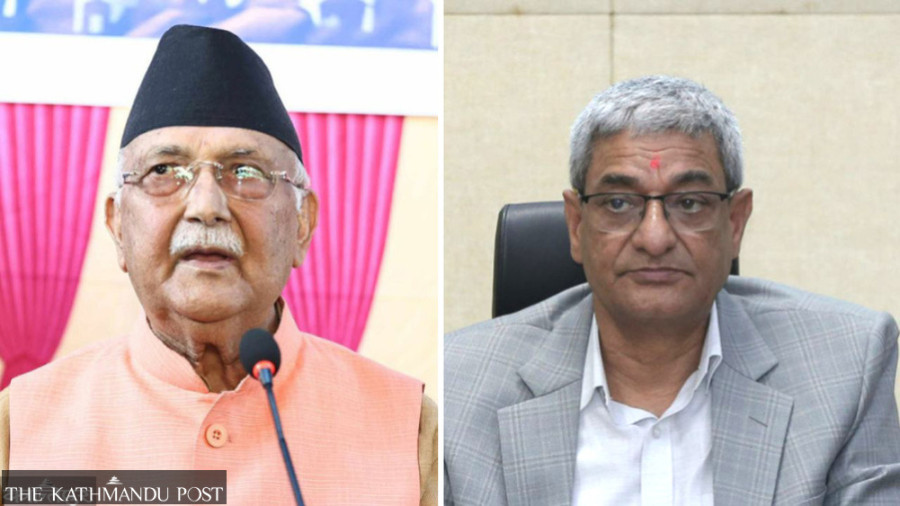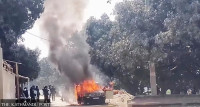National
Supreme Court refuses interim order on travel ban and passport freeze of Oli and Lekhak
The court has instead sought clarification from the government on the legality of restricting their movement.
Post Report
The Supreme Court has refused to issue an interim order against the government’s decision to freeze the passports of former prime minister KP Sharma Oli, former home minister Ramesh Lekhak, and other senior officials linked to the violent suppression of the September Gen Z protests.
A single bench of Justice Nripadhwaj Niraula on Friday issued only a show cause order, asking the government to clarify why the decision should not be quashed.
Advocate Premraj Silwal had filed the writ petition, arguing that requiring the former leaders to obtain permission to travel from one place to another was unconstitutional.
During the first hearing, the Supreme Court has directed the government and the commission to submit a written response within 15 days. The court has also asked them to present the basis and reasons for making such a decision.
The government, acting on the recommendation of the inquiry commission probing the September 8–9 protests, had decided to freeze the passports of Oli, Lekhak, then home secretary Gokarna Mani Duwadi, then National Investigation Department chief Hutaraj Thapa, and then chief district officer of Kathmandu, Chhabi Rijal.
The commission, led by Gauri Bahadur Karki, said the move was necessary to ensure accountability and prevent interference in the ongoing investigation. The order also barred the five from leaving the Kathmandu Valley.
During the protests, 19 youths were killed near the federal parliament in New Baneshwar after police opened fire on demonstrators opposing corruption and a ban on social media. The death toll later rose to 76.
The CPN-UML, led by Oli, has condemned the government’s move, calling it an act of “political revenge.”




 23.39°C Kathmandu
23.39°C Kathmandu













